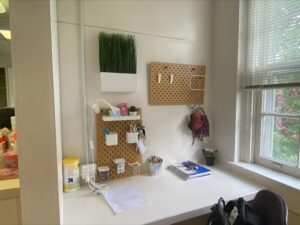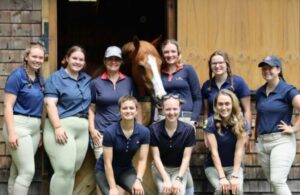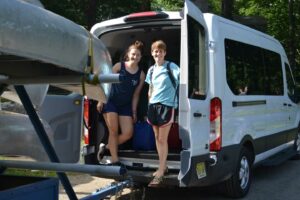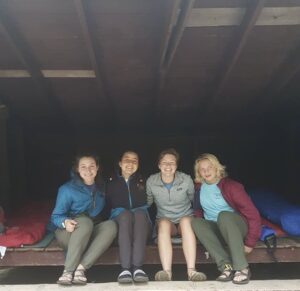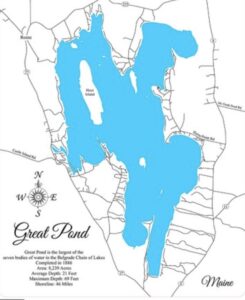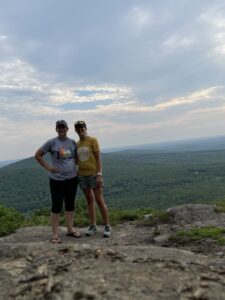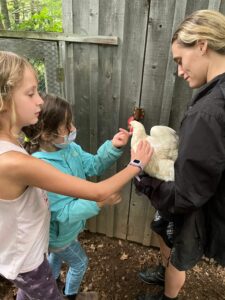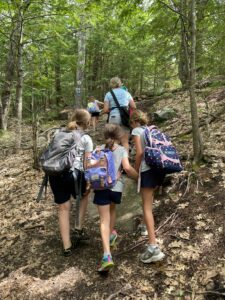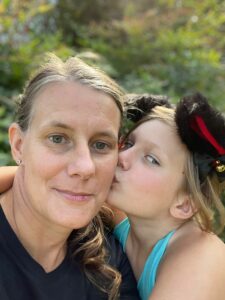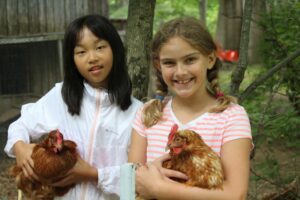 As we gear up for our 116th consecutive camp season connections in our community are paramount – more than ever.
As we gear up for our 116th consecutive camp season connections in our community are paramount – more than ever.
I recently reviewed our staff/counselor list of names and my excitement for camp grew. In just over one month, young leaders from all over the United States and from around the world will gather with us to connect, learn from each other, define core values, practice teaching skills, and most of all build a healthy community welcoming children to join in and stretch and grow through the camp experience.
One name on the list jumped out at me. Liz and I met because she thanked me for supporting her college. As a student working with Sterling College advancement, she reached out with a personalized thank you note to me. She told me about a field study trip she was taking with her class to the SW of the United States. She is from Brooklyn, NY and was excited and a little nervous for her adventure – completely normal. I looked her up and reached out to her. Someone with her courage and determination was someone I was interested in finding out more about! Fast forward through the connection, she applied to camp and Alex Jackson, our co-director interviewed and hired her as a counselor who will help lead trips, work on our ropes course and connect with youth in an outdoor, unplugged setting.
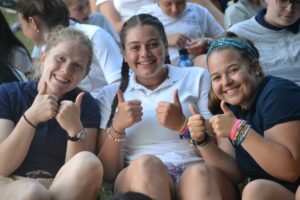 Camp is all about connections. Our alumnae come back to camp to work and send their children to camp. Our staff reach out to friends to have them work at camp. Our families, alumnae and staff meet people who seem like a great fit and invite them to come to camp to work. Our assistant directors, Jen and Colleen, reconnect with camp friends and reach out to college friends and people in specific jobs, be it nursing or crafts, riding or rowing, and help them find their way to our community. Together we join at camp to build our summer community of leaders. We are all very excited and maybe a little nervous – completely normal.
Camp is all about connections. Our alumnae come back to camp to work and send their children to camp. Our staff reach out to friends to have them work at camp. Our families, alumnae and staff meet people who seem like a great fit and invite them to come to camp to work. Our assistant directors, Jen and Colleen, reconnect with camp friends and reach out to college friends and people in specific jobs, be it nursing or crafts, riding or rowing, and help them find their way to our community. Together we join at camp to build our summer community of leaders. We are all very excited and maybe a little nervous – completely normal.
Jen recently added a fun pre-camp idea for our counselors. Alex has our returning campers write a new camper before camp starts. Sometimes they become pen pals and it’s a lovely, old-fashioned way to make a connection before you come to camp. Jen extended this same idea to counselors. This year, she has connected returning counselors with new counselors by letter writing. At Camp Runoia, we are part of something bigger than ourselves. Whether we are campers or counselors, it’s the connections that make the difference.
Sometimes it all starts with a simple and personalized thank you letter or a new pen pal connection.
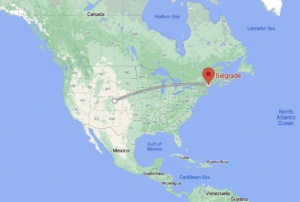
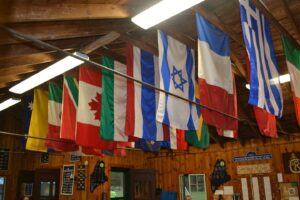
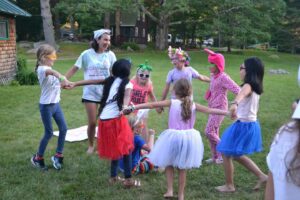
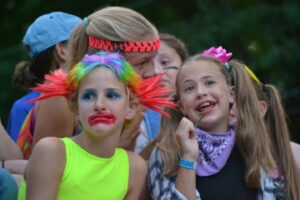
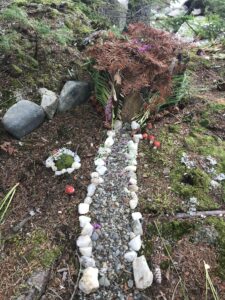
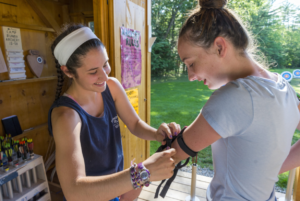 try new things, build our skills, and learn from new perspectives. Our campers understand the value and thrill (and, in all honesty, nervousness) of trying something brand new, and the bravery of attempting the next level. Many of our
try new things, build our skills, and learn from new perspectives. Our campers understand the value and thrill (and, in all honesty, nervousness) of trying something brand new, and the bravery of attempting the next level. Many of our 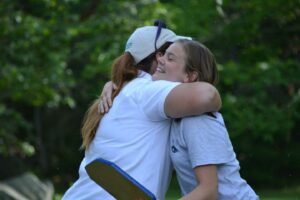
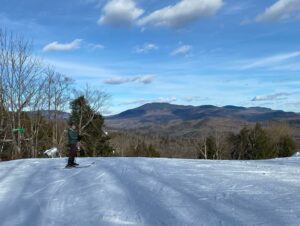 s every few hundred feet.” But a growth mindset tells Mackenzie that even after hard falls, she has the ability to learn and grow: “After big wipeouts that knocked the wind out of me I’d sit and catch my breath wishing I learned at the age of 3 like it seemed everyone else on the mountain had. After studying the way others moved, advice from friends who ski, and a beginners lesson, I learned new skills one at a time.” Mackenzie closed out our conversation with some serious growth-mindset attitude: “I continue to learn one step at a time and remind myself of the privilege it is to ski regardless of starting age. Now I know that there is truly no ‘mastering’ a skill because it can always get better from there.”
s every few hundred feet.” But a growth mindset tells Mackenzie that even after hard falls, she has the ability to learn and grow: “After big wipeouts that knocked the wind out of me I’d sit and catch my breath wishing I learned at the age of 3 like it seemed everyone else on the mountain had. After studying the way others moved, advice from friends who ski, and a beginners lesson, I learned new skills one at a time.” Mackenzie closed out our conversation with some serious growth-mindset attitude: “I continue to learn one step at a time and remind myself of the privilege it is to ski regardless of starting age. Now I know that there is truly no ‘mastering’ a skill because it can always get better from there.”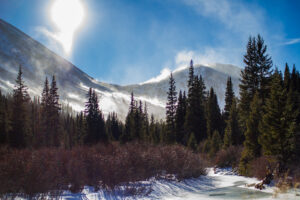 As a high-energy assistant camp director and tutor, I think people often assume that I am an extrovert. How could you possibly do all of that and not be? I love being around and working with people, sure, but oftentimes it is draining. I recharge as an introvert does – alone, often outside on a trail, or maybe inside with a cup of tea and a good book or craft.
As a high-energy assistant camp director and tutor, I think people often assume that I am an extrovert. How could you possibly do all of that and not be? I love being around and working with people, sure, but oftentimes it is draining. I recharge as an introvert does – alone, often outside on a trail, or maybe inside with a cup of tea and a good book or craft.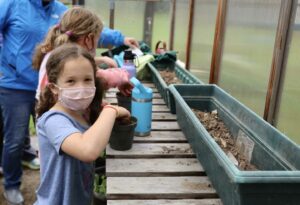 Luckily, Runoia is built for our extroverts, introverts, and ambiverts alike. Our
Luckily, Runoia is built for our extroverts, introverts, and ambiverts alike. Our 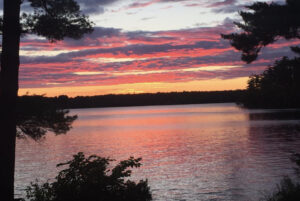

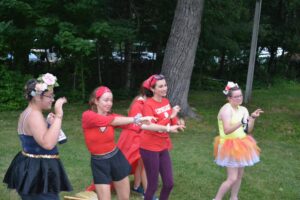 At camp we introduce ourselves now as I’m so and so and my pronouns are… it feels normal and fluid although it took some getting used to by many older people. Here’s one camp mom’s
At camp we introduce ourselves now as I’m so and so and my pronouns are… it feels normal and fluid although it took some getting used to by many older people. Here’s one camp mom’s 